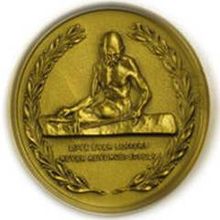NEW DELHI, Mar 22: After making necessary changes in the procedure, India on Monday conferred “The Gandhi Peace Prize for the year 2020” on Bangabandhu Sheikh Mujibur Rahman.
The prestigious prize for the year 2019 is being conferred on late Sultan Qaboos bin Said Al Said of Oman in recognition of his vision to strengthen relations with India, and his efforts to promote peace and non-violence in the Gulf region, the ministry said.
The Gandhi Peace Prize is an annual award instituted by the Government of India since 1995, the 125th birth anniversary commemoration year of Mahatma Gandhi. The award is open to all people regardless of nationality, race, language, caste, creed or sex.
A special exception was made for the award to be conferred on the two leaders, as the selection procedure for the prize does not allow it to be awarded posthumously. The prize is given for social, economic and political transformation through non-violence and other Gandhian methods.
The jury for Gandhi Peace Prize is chaired by Prime Minister Narendra Modi and comprises of two ex-officio members, namely the chief justice of India and leader of the single largest opposition party in the Lok Sabha.
Two eminent members are also part of the jury — Om Birla, Speaker of the Lok Sabha, and Bindeshwar Pathak, Founder of Sulabh International Social Service Organisation.
The jury met on March 19, 2021 and after due deliberations, unanimously decided to select Bangladesh’s father of the nation, Sheikh Mujibur Rahman, and Oman’s longtime ruler Sultan Qaboos for the prize, an official statement said.
PM Modi said Bangabandhu was a champion of human rights and freedom, and a hero to Indians as well.
He also said the legacy and inspiration of Bangabandhu has made the heritage of both countries more comprehensive and deep-rooted, and that the path shown by Bangabandhu has laid a strong foundation for the partnership, progress and prosperity of both countries over the last decade.
“As Bangladesh celebrates ‘Mujib Borsho’, India is honoured to be commemorating his legacy jointly with the government of Bangladesh and its people,” the statement said.
The cultural ministry said late Sultan Qaboos, the longest-serving leader in the Middle East and Arab world at the time of his death in 2020, received the prize, in “recognition of his outstanding contributions for social, economic and political transformation through non-violent and other Gandhian methods”.
The award carries an amount of ₹ 1 crore, a citation, plaque and an exquisite traditional handicraft/ handloom item.
“His Majesty Sultan Qaboos was a visionary leader whose twin policy of moderation and mediation in addressing international issues won him praise and respect across the globe. He played an important role in supporting peace efforts in various regional disputes and conflicts,” the statement said.
“Sultan Qaboos was the architect of the special ties between India and Oman. He had studied in India and always maintained a special relationship with India. Under his leadership, India and Oman became strategic partners and our mutually beneficial, comprehensive partnership strengthened and scaled newer heights,” it added.
According to the statement, Modi had recalled the contribution of Sultan Qaboos to India-Oman ties when he passed away by saying that he was “a true friend of India and provided strong leadership for developing a strategic partnership between India and Oman”.
The prime minister had also remembered him as a “visionary leader and statesman” and “beacon of peace for our region and the world.”
“Gandhi Peace Prize recognizes the unparalleled vision and leadership of the late Sultan Qaboos Bin Said in strengthening relations between India and Oman, and his efforts to promote peace and non-violence in the Gulf region,” the statement said.
Past awardees include former Tanzania president Julius Nyerere, Gerhard Fischer of Germany, the Ramakrishna Mission, Baba Amte, former South African president Nelson Mandela, the Grameen Bank of Bangladesh, Archbishop Desmond Tutu of South Africa, Chandi Prasad Bhatt, the Indian Space Research Organisation, Vivekananda Kendra, India (2015); Akshaya Patra Foundation, India and Sulabh International (jointly, for 2016); Ekal Abhiyan Trust, India (2017) and Yohei Sasakawa, Japan (2018).
(Manas Dasgupta)

